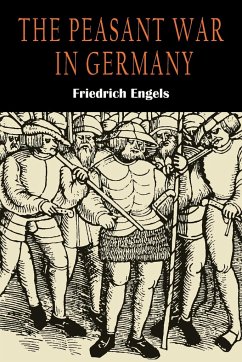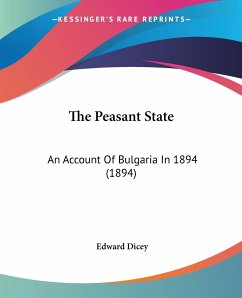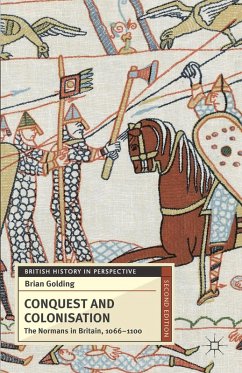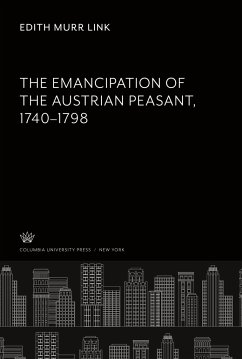
The Peasant War in Germany
Versandkostenfrei!
Versandfertig in 1-2 Wochen
12,99 €
inkl. MwSt.

PAYBACK Punkte
6 °P sammeln!
2022 Reprint of the 1926 Edition. Full facsimile of the original edition and not reproduced with Optical Recognition Software. The Peasant War in Germany was a widespread popular revolt in some German-speaking areas in Central Europe from 1524 to 1525. It failed because of intense opposition from the aristocracy, who slaughtered up to 100,000 of the 300,000 poorly armed peasants and farmers. The survivors were fined and achieved few, if any, of their goals. Like the preceding Bundschuh movement and the Hussite Wars, the war consisted of a series of both economic and religious revolts in which ...
2022 Reprint of the 1926 Edition. Full facsimile of the original edition and not reproduced with Optical Recognition Software. The Peasant War in Germany was a widespread popular revolt in some German-speaking areas in Central Europe from 1524 to 1525. It failed because of intense opposition from the aristocracy, who slaughtered up to 100,000 of the 300,000 poorly armed peasants and farmers. The survivors were fined and achieved few, if any, of their goals. Like the preceding Bundschuh movement and the Hussite Wars, the war consisted of a series of both economic and religious revolts in which peasants and farmers, often supported by Anabaptist clergy, took the lead. The War was Europe's largest and most widespread popular uprising prior to the French Revolution of 1789. The fighting was at its height in the middle of 1525. Engels analyzes the social and economic forces which brought about the peasant revolt of 1525 and its role in the Reformation. He portrays vividly the contrasting figures of Thomas Muenzer and Martin Luther, in relation to the revolutionary peasants and to the princes. The book has an enduring theoretical interest, as one of the earliest discussions of the revolutionary potential of the peasantry. Illustrated with drawings and woodcuts of the time.












